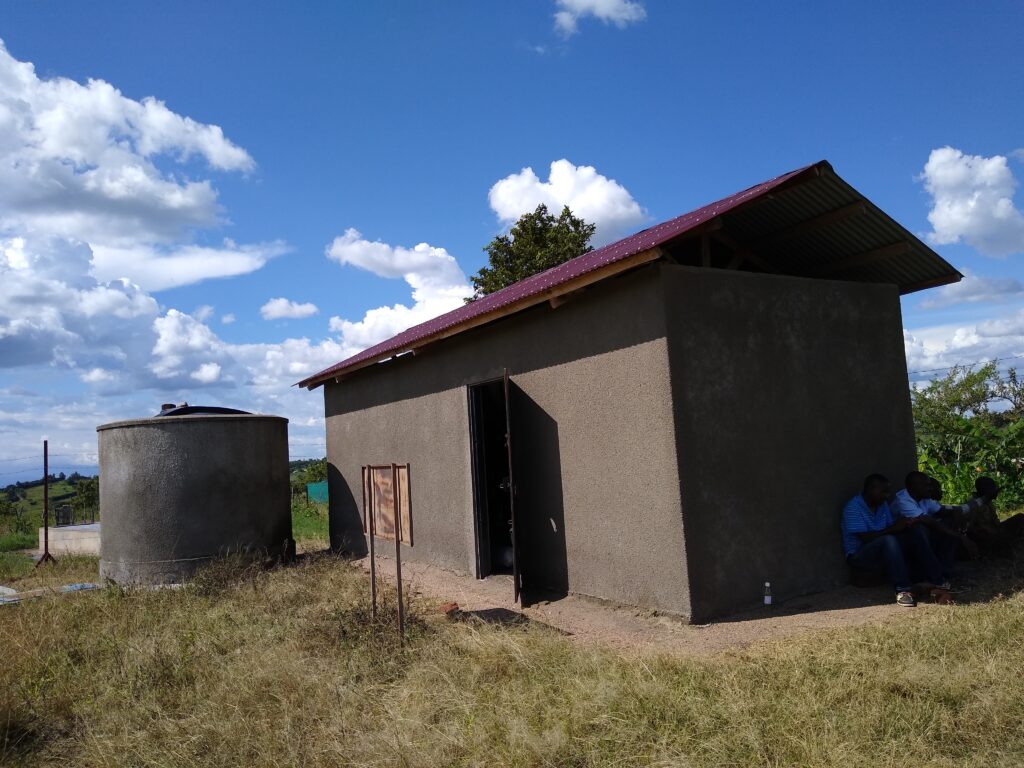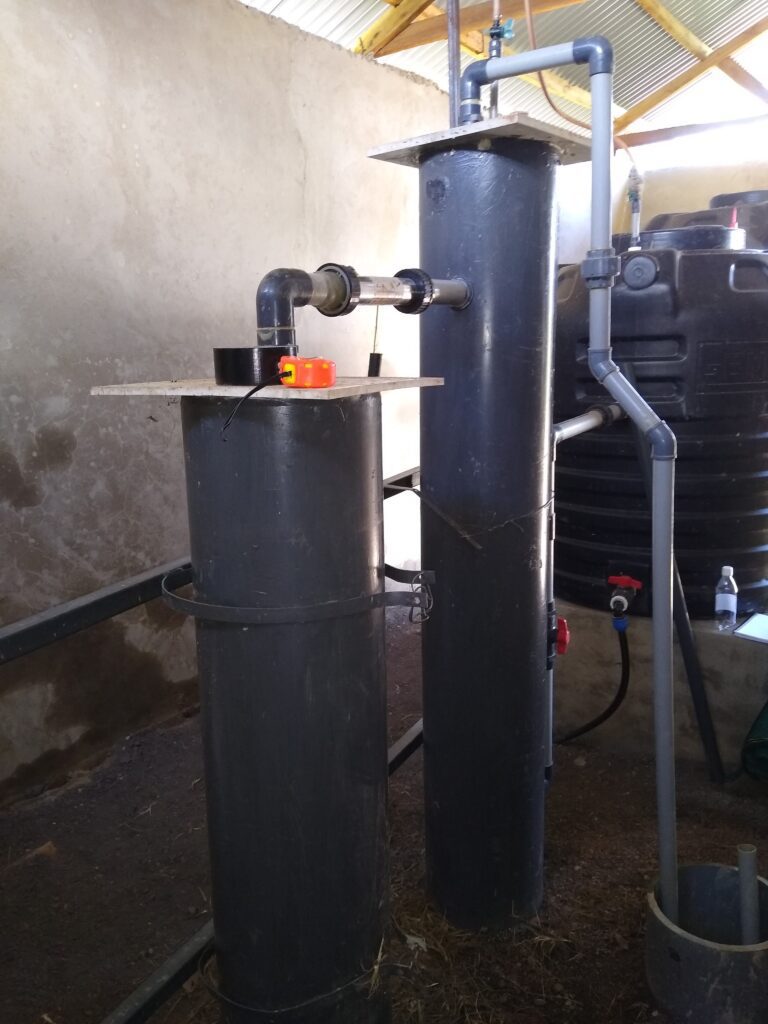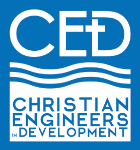A new pump makes it easier to water cattle and safer for locals to drink the water, protecting the critically endangered plants in the gorge at the same time.

Mpanga Gorge, formed by the Mpanga river with its cascading waterfalls, contains a unique ecosystem providing home to the last remaining 8,000 Critically Endangered Encephalartos Whitelokii cycad plant species in the world. It is at risk from slash and burn agricultural techniques, combined with the need to bring cattle down into the gorge to find water.
To provide a solution to this problem, a hydraulic ram pump has been installed to pump river water to the top
of the gorge where community beneficiaries homes and cattle troughs are located. This allows cattle to be watered without the need to enter the gorge and the community beneficiaries no longer have the arduous journey to the bottom of the gorge to collect water for household purposes.

To ensure water quality was suitable for community beneficiaries, a new self-washing filtration system designed to treat water for remote communities was installed. The system needs no operational intervention to backwash making it ideal for off-grid locations. The installation has been operating for 15 months and the Ugandan site operator says it is working “so well”.
From the appearance of the backwash water the majority of turbidity is removed by the tube clarifier with he filter performing a finishing function. Limited test results showed good removal of E.coli and faecal coliforms with zero counts downstream of disinfection.
One of CED’s members, Nigel Heeler, has established a “not for profit” company providing solutions for development and disaster response called WaterReach Ltd. His key product, the ClariWash, is this self-cleaning filtration system relying on water pressure alone to operate. This example shows it being put to use in an innovative project helping people, cattle and the environment all at the same time.
Website: waterreach.co.uk
Contact: nigel.heeler@waterreach.co.uk
